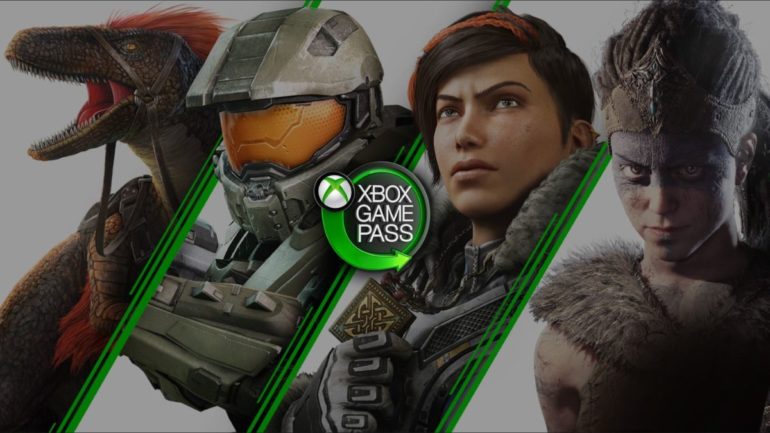With hundreds of games in its library, day one releases of first-party Microsoft games, up to 20% discount on purchases, and a ridiculously low monthly fee, Game Pass offers the most insane value I’ve ever seen in the gaming industry. I don’t even feel bad for not finishing games I don’t like anymore.
So what then? Is it good for consumers and bad for developers? Not really. Or at least it doesn’t seem to be.
Exact numbers flowing between Microsoft and developers who sign up for Game Pass haven’t been divulged but, generally speaking, developers seem quite happy with the deals they received. At a GDC Summer talk this year, Davionne Gooden of Studio Zevere said, “It’s still the biggest financial deal I’ve ever gotten, to the point where I had to ask them to repeat the numbers on the phone call.” And at a Gamelab panel last year, Dino Patti, co-founder of Playdead and Jumpfish, stated that “Game Pass is the first time subscription is what could be considered fair for developers.”
Consumers get a good deal, developers get a good deal, everybody gets a good deal. Looking at it this way, everything seems fine right now. But I see a dark, foreboding shadow in our future. I feel it in the earth. I smell it in the air. And I see it, well, all over the internet if you know where to look.
A Game of Monopoly

The recent news that Microsoft had acquired ZeniMax for the hefty sum of $7.5 billion created plenty of headlines. Which is only natural, considering it’s one of the priciest acquisitions in gaming history, second only to the poaching of Supercell in 2016 by a consortium that is now majority-owned by Tencent.
Now, if Twitter was a stadium, you’d be seeing around 110k likes worth of fans doing the wave right about now. I mean, who among us hasn’t cringed at Bethesda’s mismanagement of Fallout 76? Not to mention abounding expectations of a Fallout: New Vegas sequel, now that Bethesda and Obsidian are working under the same roof.
Microsoft has garnered some good faith among gamers over the recent past, with its Game Pass service and consumer-friendly exclusivity policies, and this deal could only spell good things for us, right? But behind Major Nelson’s affable demeanor and @Microsoft’s eerily anthropomorphized tweets, what you find isn’t a person or a community. It’s a board of shareholders and a corporation beholden to its bottom line.
This has nothing to do with gaming or gamers. This is a potshot taken within big business wars.
The threat of monopolization has gained momentum over the years, and it manages to stay unnoticed by the public largely due to the fact these corporations know monocles and a top hat are not a good look for them. Parent companies graciously allow their subsidiaries to maintain their brands so that when we look at them, we don’t see monolithic conglomerates, we see the good ol’ friendly faces we’re used to. This is particularly effective within the entertainment business.
For instance, many people still see League of Legends and Fortnite as being synonymous with Riot and Epic respectively, even though Tencent owns a 40% stake in Epic and 100% of Riot Games. And Microsoft itself has acquired hundreds of companies. Over thirty of them since 2018 alone, eight of which are gaming-related. Not to mention the host of other subsidiaries previously acquired by those same companies.
We may look at video games as both escapism and an art form, but it’s also the biggest entertainment industry there is. Despite the PR, Microsoft doling out billions of dollars to acquire one of the biggest video game production companies isn’t two families joining hands, it’s just business as usual. For conglomerates, gaming is just another market to be conquered and monopoly is the name of the game.
Business as usual is only good for the businessman.
The United States v. Microsoft

Back in the late 90s, Microsoft faced an antitrust lawsuit from the United States government, accused of malpractices that disrupted the competition in the digital market. Microsoft was originally found guilty and ordered to split its company but was able to later overturn the case, settling on foregoing some barriers to third-party software on Windows. Besides the lawsuit, the company also reportedly sought a middlemen monopoly over internet commerce itself.
This case is relevant because it showcases Microsoft’s “mindset.” Bill Gates is arguably a human being but Microsoft isn’t. When left to their own devices, businesses will always choose profitable over ethics. Corporations don’t care about your feelings.
Market monopoly is universally accepted as a bad, bad thing. But if any given company can control the market, why wouldn’t they? It is, in fact, the obvious goal of any successful business, and Microsoft has the legal history to prove it.
ISPs v. the Internet
Do you remember net neutrality? It was all the rage a few years back.
Net neutrality is “the concept that all data on the internet should be treated equally by corporations.” In other words, it’s a set of regulations that protect consumers from ISP (internet service provider) mal-practices. Which is very important in the US, for instance, where a handful of ISPs hold monopoly over internet access. Comcast’s CEO, Brian Roberts, admitted on a 2014 live TV show that they colluded with Time Warner to maintain their control of the market, something as demonstrably true in 2020 as it was back in 2017:
“Both in video and in broadband we don’t compete with Time Warner. We have to start with that very fundamental point. They’re in N.Y., we’re in Philadelphia. They’re in L.A., we’re in San Francisco. You can’t buy a Comcast in New York, can’t buy a Time Warner in Philadelphia. So there’s no reduction in competition. In broadband or in television.”
It’s important to note that net neutrality isn’t an antitrust law meant to break up their monopoly, but it’s meant to at least regulate them. Which makes the FCC’s “Restoring Internet Freedom Order” effectively pro-monopoly, since it repeals the regulations that’d keep those companies in check. Back then, a lot of people made a fuss but the FCC’s “Order” came through anyway. Then in 2018 there was a lawsuit contesting it but it was shut down in the court. And just a couple of months ago, the deadline for appealing that decision expired.
So, why is this relevant? Because ISPs act as gatekeepers to the internet and they are poised to act as gatekeepers to internet gaming as well. Comcast’s Xfinity service has already made partnerships in the eSports scene and Brian Roberts’ son, Tucker Roberts, just joined the board of directors at Nerd Street Gamers. Without net neutrality, there are fewer regulations stopping Comcast from extending their monopoly into this new, highly lucrative market they’re moving into. For example, the (unspoken) threat of throttling could be used as leverage to muscle their way into new partnerships, and that same practice can also be directed at his son’s competitors, securing an unfair advantage for his company.
Both Microsoft and ISPs have a documented history of monopoly and collusion. A partnership between them could help Game Pass reach and/or secure an effective monopoly over the digital gaming distribution market, by providing it with the same unfair advantages mentioned above.
Cinema v. Game Pass?

So, I’ve heard an argument being made about Epic’s exclusives before by a certain YouTuber. It went something along the lines of “exclusives would be OK if Epic owned the studios making these games.” And that always rubbed me the wrong way. It’s not that the argument is wrong. It does have some logic to it. No, the problem is the mindset that supports it.
Something that can help illustrate this point are the Paramount Consent Decrees. Back in the 1930s, the US Department of Justice filed a lawsuit against eight movie companies, and ruled that “the defendants had engaged in a wide-spread conspiracy to illegally fix motion picture prices and monopolize both the film distribution and movie theatre markets.” By controlling both production and distribution of movies, a handful of companies were able to corner the entire market and to do with it as they saw fit. Then, out of the lawsuit came the Decrees, which regulated movie distribution practices to protect both the market and the consumers from monopoly.
Until early August, that is, when a federal court terminated the Consent Decrees.
The court’s reasoning was that those regulations were outdated. That they didn’t account for digital distribution services and didn’t include many companies that weren’t involved in the original lawsuit. But while I do agree with that, I also think updating the Decrees would have been a much better solution than scrapping them altogether. Including, among other things, provisions to place those same checks on digital services such as Netflix and Disney+.
There is ongoing debate about monopolies in the digital market, like the impending antitrust lawsuit the Department of Justice is predicted to throw at Google in the next few weeks. But just like with Net Neutrality, the decision to terminate the Paramount Consent Decrees shows a trend that enables the biggest companies to exert undue control over marketplaces.
The Decrees could have been an important precedent in future legal cases, drawing from the similarities shared by our current digital distribution environment, and both the original Paramount case and the framework constructed by the arguments used to shut the Consent Decrees down.
Microsoft’s already ineffable scope has only grown more impressive over the last couple of years, securing a larger piece of the gaming market with each past acquisition and every acquisition to come. And subscription services like Game Pass provide them the opportunity to “[lock] existing consumers into an ecosystem,” as DFC Intelligence’s David Cole told GameDaily. Not to mention the push to cloud gaming, which is bound to throw even more kindling into this theoretical garbage fire. This combination primes Microsoft—and others like them—to get up to the same kind of illegal practices Paramount and its cronies did back in the day.
I love Game Pass, but it scares the hell out of me. When left unchecked, companies will always choose their bottom line over our well-being. A future where the gaming industry is laden with monopolies and collusions is, at this point, still speculative. But the point of placing checks is to prevent undesirable scenarios from coming to fruition. Rather than waiting for history to repeat itself, there needs to be an international push to regulate these companies in order to protect us from their overreach.
READ NEXT: Best Gaming Subscription Services: Which Is Right For You?
Some of the coverage you find on Cultured Vultures contains affiliate links, which provide us with small commissions based on purchases made from visiting our site.

